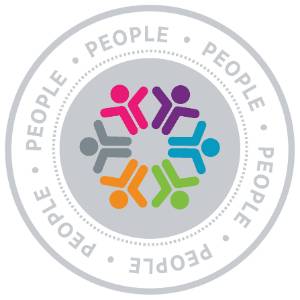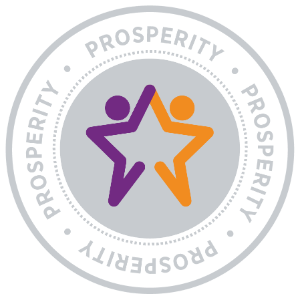
Saskatchewan Polytechnic researchers have been awarded six Align grants from the Saskatchewan Health Research Foundation (SHRF) in 2023-24, totaling nearly $60,000 in funding.
“Congratulations to Sask Polytech’s Centre for Health Research, Innovation and Scholarship (CHRIS) researchers on securing funding from SHRF for their innovative and impactful healthcare projects,” says Dr. Susan Blum, Sask Polytech's vice president of applied research and innovation. “Our team of researchers is engaged in a variety of innovative projects, partnering with the community to enhance the quality of life in our province.”
The SHRF Align Grant promotes research that addresses the needs of Saskatchewan communities and involves stakeholders beyond academia. Successful projects enhance research relevance through interdisciplinary collaboration and engagement with stakeholders; improve success in securing regional, national and international funding; and support the development of research and health professional trainees by providing opportunities for collaborative team building and professional skill development.
“SHRF is proud to announce the recipients of the 2023-24 Align Grant funding, marking another step forward in our commitment to addressing Saskatchewan's diverse health needs,” says Patrick Odnokon, SHRF CEO. “These grants, a vital component of our Connections Program, facilitate collaboration and innovation, ensuring our research remains relevant and impactful within Saskatchewan.”
“The vision of our centre is to contribute to the delivery of quality healthcare to patients, families and communities in Saskatchewan,” says Dr. Michelle Pavloff, CHRIS director. “The Sask Polytech research funded by the SHRF Align Grant is innovative, creative and collaborative. Congratulations to our researchers. I’m excited to share the results of their hard work.”
Lindsey Boechler, CHRIS researcher, and Eileen Zaba, Psychiatric Nursing faculty, received $10,000 to partner with James Smith Cree Nation and La Loche community members to co-create a comprehensive preparedness framework tailored specifically for responding to mass casualty incidents. Their focus is on addressing the collective needs of communities during times of crisis. This framework aims to address the unique challenges faced by communities that have previously endured crises, such as the September 2022 attacks in James Smith Cree Nation and the January 2016 school shooting in La Loche. Grounded in evidence-based approaches, the proposed framework will assess the outcomes of previous responses and identify effective practices to enhance support for community leaders in the event of future community-wide incidents within Indigenous communities.
Dr. Pamela Farthing, Saskatchewan Bachelor of Science in Nursing (SCBScN) program faculty and CHRIS researcher, along with her patient-oriented research team, received $10,000 to investigate how to help teenagers with Type 1 Diabetes (T1D) and their parents cope with the challenges of diabetes management. T1D can have a significant impact on teenagers and their parents, affecting both their physical and mental health. This project aims to develop an intervention strategy to better manage T1D during adolescence, ultimately improving the lives of those affected by the disease.
Dr. Sarah Kostiuk, CHRIS research chair, along with her interdisciplinary team, received $10,000 to explore patient involvement in healthcare education to enhance patient-centered care teaching. Patients contribute as experts-by-experience through methods like classroom teaching, joint reflection and feedback. They also aid in creating learning resources such as patient stories and case studies and advise on curriculum development. Although there are many benefits to patient involvement, there are challenges for patient partners teaching in healthcare education. Our team's research aims to address these challenges by co-designing accessible resources with patient partners. Workshops will gather input on recommendations, policies and training needs. The resulting digital material will support inclusive environments in healthcare education, benefiting Saskatchewan's healthcare workers and students.
Linda Martin, Therapeutic Recreation program head and instructor, received $10,000 to conduct a needs assessment for the delivery of recreation therapy services in schools for students with high and complex needs. This assessment will focus on students with a combination of mental health, social behavioral, trauma-based symptoms, physical, developmental and/or learning disabilities. Her project aims to enhance the provision of recreation therapy services to better support these students within Saskatchewan's school systems.
Dr. Michelle Pavloff, CHRIS director, received $9,989 to lead an interdisciplinary research project called Farm Reminiscing in partnership with the Saskatchewan Seniors Center Without Walls (SCWW). While many reminiscence programs are delivered in-person, this research will examine if success can be replicated through the established SCWW audio-only format on the telephone, much like the old party lines in Saskatchewan. The key outcomes will be to create an accessible and sustainable telephone program and cognitive support for older adults in rural areas who cannot travel to local social sites.
Stacey Waters, SCBScN program faculty, received $9,926 to identify and address bereavement support gaps for individuals who have lost a loved one at a Saskatoon intensive care unit (ICU). The project's objectives include completing and sharing a directory and interactive online community map of existing bereavement supports in Saskatchewan. Waters will be engaging bereavement support providers in participatory community mapping workshops and co-creating research objectives and solutions. SCBScN student, Anson Chen, is assisting with this research project.
The Align Grants awarded to Sask Polytech researchers will contribute to the advancement of research and the improvement of various aspects of healthcare and support services in Saskatchewan. These projects align with SHRF's mission to enhance the health and well-being of the province's residents through research and innovation.
This research work also aligns with the United Nation (UN)’s Sustainable Development Goals (SDGs). Sask Polytech, as part of an international network of post-secondary institutions, is signatory to the SDG Accord. The accord is the post-secondary sector’s collective response to advance the critical role that education has in delivering 17 global targets for reducing inequality, ending poverty and hunger, improving health and education, protecting the planet, and enabling innovation and meaningful work for prosperity by 2030.
Learn more about healthcare research at saskpolytech.ca/chris.
Saskatchewan Polytechnic is signatory to the SDG Accord. Sustainable Development Goal alignment is one of the ways Sask Polytech is leading the rise of polytechnic education.



